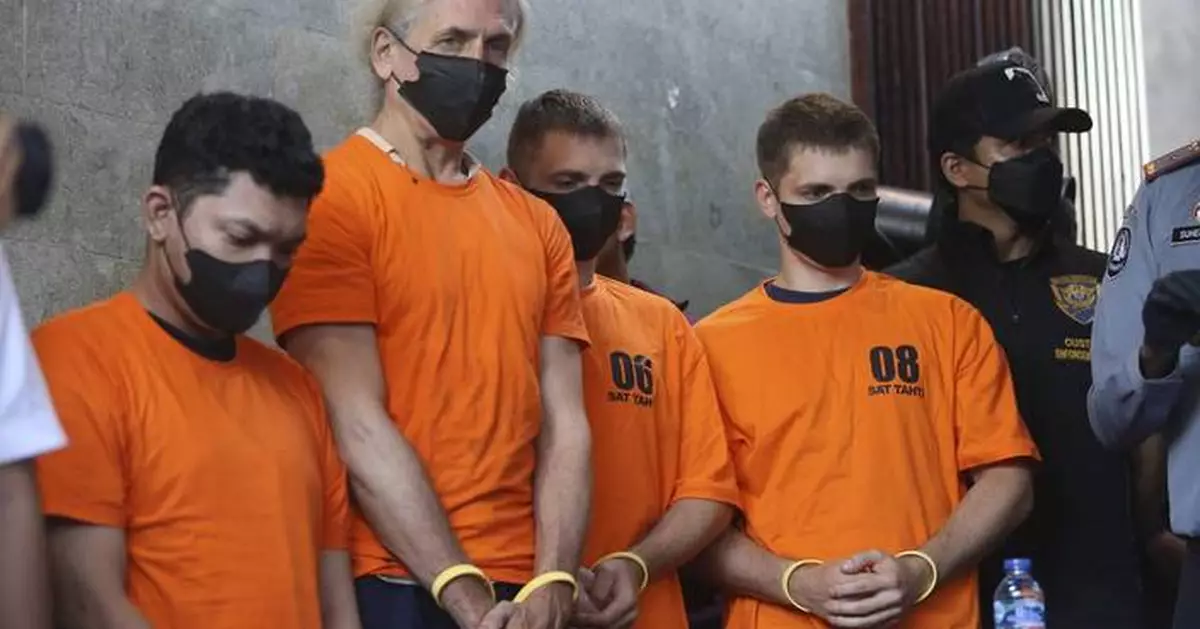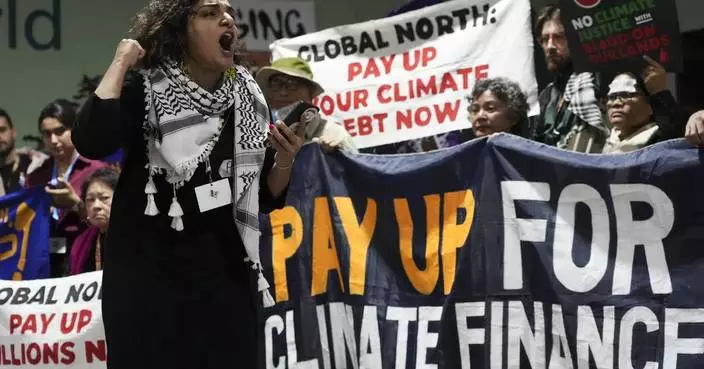DENPASAR, Indonesia (AP) — Indonesian police raided what they said was a major drug lab hidden in a villa on the resort island of Bali and arrested four people, authorities said Monday.
Police raided the house in the upscale resort area of Canggu early this month and found two drug labs in the basement, said Wahyu Widada, head of the National Police’s Criminal Investigation Department,
Click to Gallery
Police officers display evidence during a news conference at a villa in Canggu, Bali, Indonesia on Monday, May 13, 2024. Indonesian police raided what they said was a major drug lab hidden in a villa on the resort island of Bali, and arrested four people. (AP Photo/Firdia Lisnawati)
Suspects line up during a news conference at a villa in Canggu, Bali, Indonesia on Monday, May 13, 2024. Indonesian police raided what they said was a major drug lab hidden in a villa on the resort island of Bali, and arrested four people.(AP Photo/Firdia Lisnawati)
A police officer displays evidence during a news conference at a villa in Canggu, Bali, Indonesia on Monday, May 13, 2024. Indonesian police raided what they said was a major drug lab hidden in a villa on the resort island of Bali, and arrested four people. (AP Photo/Firdia Lisnawati)
The national police criminal investigation agency display evidence during a news conference at a villa in Canggu, Bali, Indonesia on Monday, May 13, 2024. Indonesian police raided what they said was a major drug lab hidden in a villa on the resort island of Bali, and arrested four people.(AP Photo/Firdia Lisnawati)
Suspects line up during a news conference at a villa in Canggu, Bali, Indonesia on Monday, May 13, 2024. Indonesian police raided what they said was a major drug lab hidden in a villa on the resort island of Bali, and arrested four people. (AP Photo/Firdia Lisnawati)
He said one of the villa's labs was designed to produce the ingredients for ecstasy, and the other contained a hydroponic farm for marijuana. Police were tipped off to the facility after an earlier raid on a Jakarta lab linked to Indonesia's most wanted drug lord.
During the raids, police arrested an Indonesian man identified by the initials LM, two Ukrainian men identified as IV and MV, and a Russian man identified as KK.
The four men could face execution. Indonesia, the world’s most populous Muslim-majority nation, has strict laws against consumption and sale of marijuana and many other drugs.
Most of the more than 150 people on Indonesia’s death row were convicted of drug crimes, about one-third of whom are foreigners. The country’s last executions were in 2016, when one Indonesian and three foreigners were shot by a firing squad.
Widada said police were tipped off to the “clandestine” labs after interrogating a suspected drug trafficker arrested in an April raid in the capital, Jakarta, on a similar lab that police say was owned by drug lord Freddy Pratama.
Widada said one of the men arrested this month, LM, was Pratama’s accountant, and was involved in operating a drug lab in Jakarta before moving to Bali to avoid arrest. He was arrested at a rented house near Kuta, a popular tourist spot, with 6 kilograms (13.2 pounds) of crystal methamphetamine.
Widada said that IV and MV were accused of being investors and drugmakers at the Bali labs, while KK was accused of selling drugs for them, adding that police are searching for two more dealers, Ukrainian men identified as RN and OK.
Wearing orange detainee uniforms, the suspects were paraded with their hands tied at a news conference in Denpasar, the capital of Bali province.
Police seized hundreds of kilograms (pounds) of precursor chemicals for ecstasy and equipment for growing marijuana, including ultraviolet lighting and an automatic watering system.
Last year, Indonesia’s Constitutional Court rejected a judicial review of the country’s narcotics law that would have paved the way for legalizing marijuana for medicinal use.
The United Nations Office on Drugs and Crime says Indonesia is a major smuggling hub despite having some of the strictest drug laws in the world, in part because international drug syndicates target its young population.
——
Niniek Karmini contributed to this report from Jakarta, Indonesia.
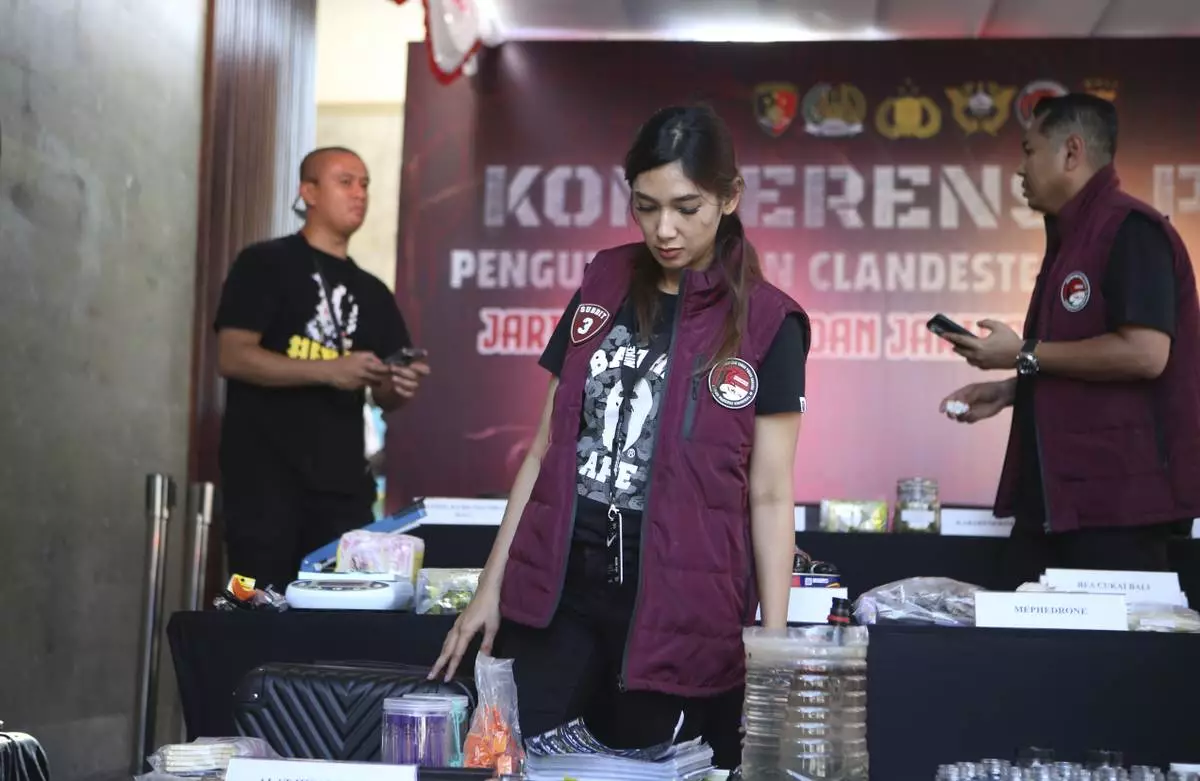
Police officers display evidence during a news conference at a villa in Canggu, Bali, Indonesia on Monday, May 13, 2024. Indonesian police raided what they said was a major drug lab hidden in a villa on the resort island of Bali, and arrested four people. (AP Photo/Firdia Lisnawati)
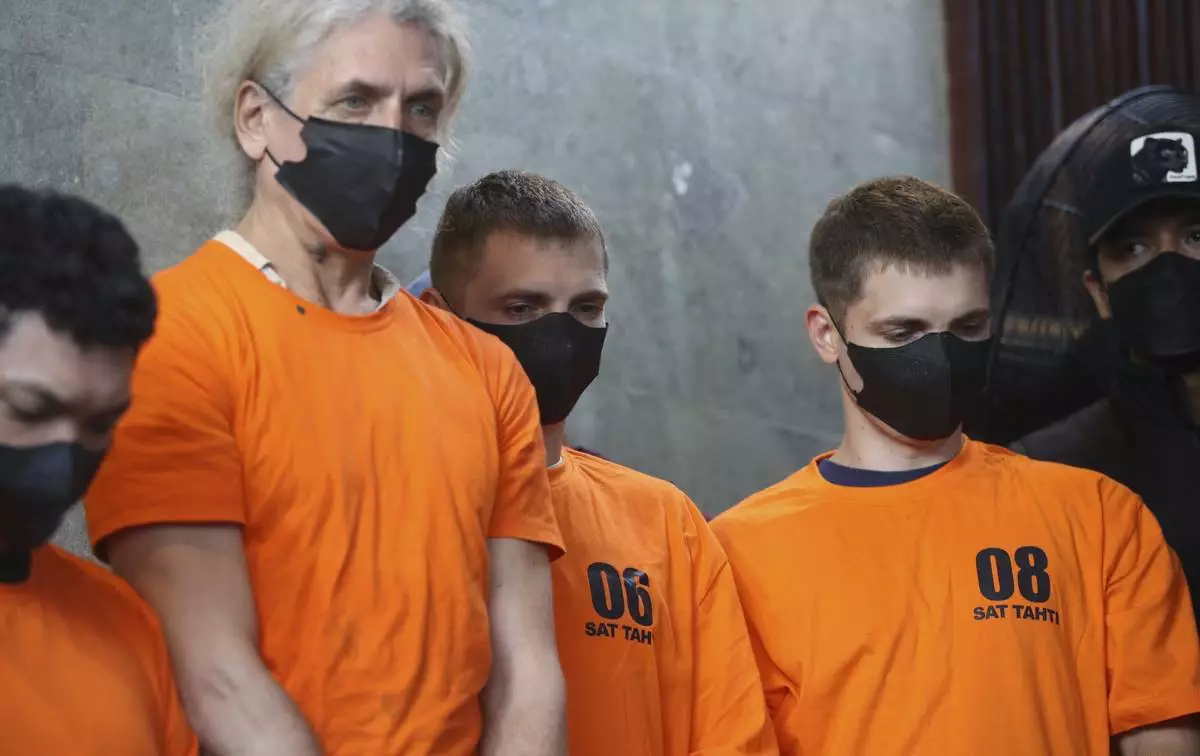
Suspects line up during a news conference at a villa in Canggu, Bali, Indonesia on Monday, May 13, 2024. Indonesian police raided what they said was a major drug lab hidden in a villa on the resort island of Bali, and arrested four people.(AP Photo/Firdia Lisnawati)
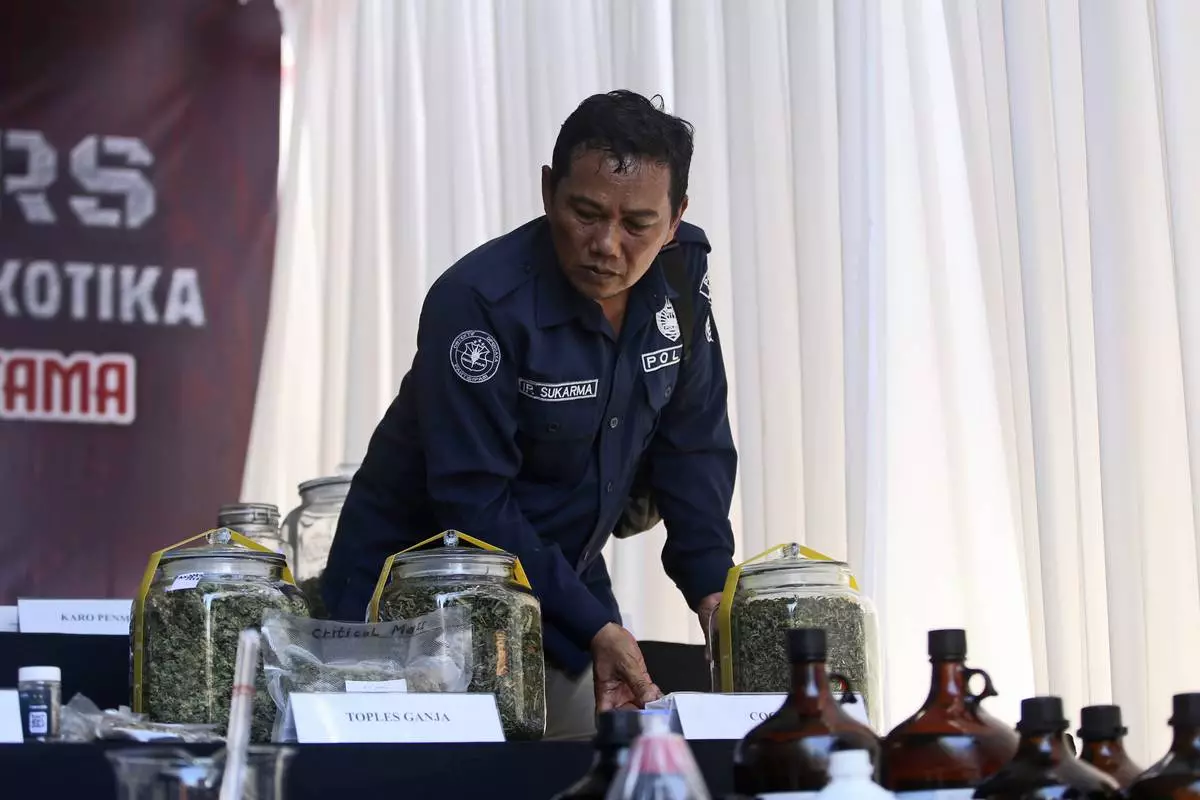
A police officer displays evidence during a news conference at a villa in Canggu, Bali, Indonesia on Monday, May 13, 2024. Indonesian police raided what they said was a major drug lab hidden in a villa on the resort island of Bali, and arrested four people. (AP Photo/Firdia Lisnawati)
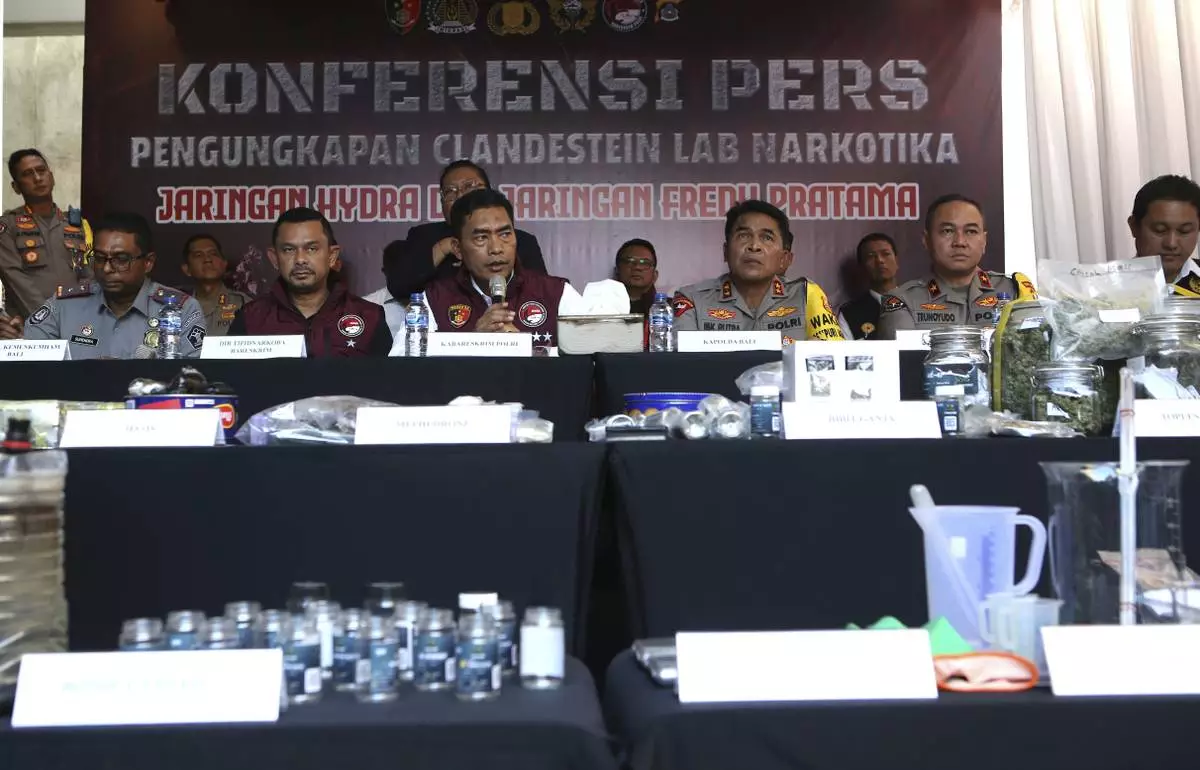
The national police criminal investigation agency display evidence during a news conference at a villa in Canggu, Bali, Indonesia on Monday, May 13, 2024. Indonesian police raided what they said was a major drug lab hidden in a villa on the resort island of Bali, and arrested four people.(AP Photo/Firdia Lisnawati)
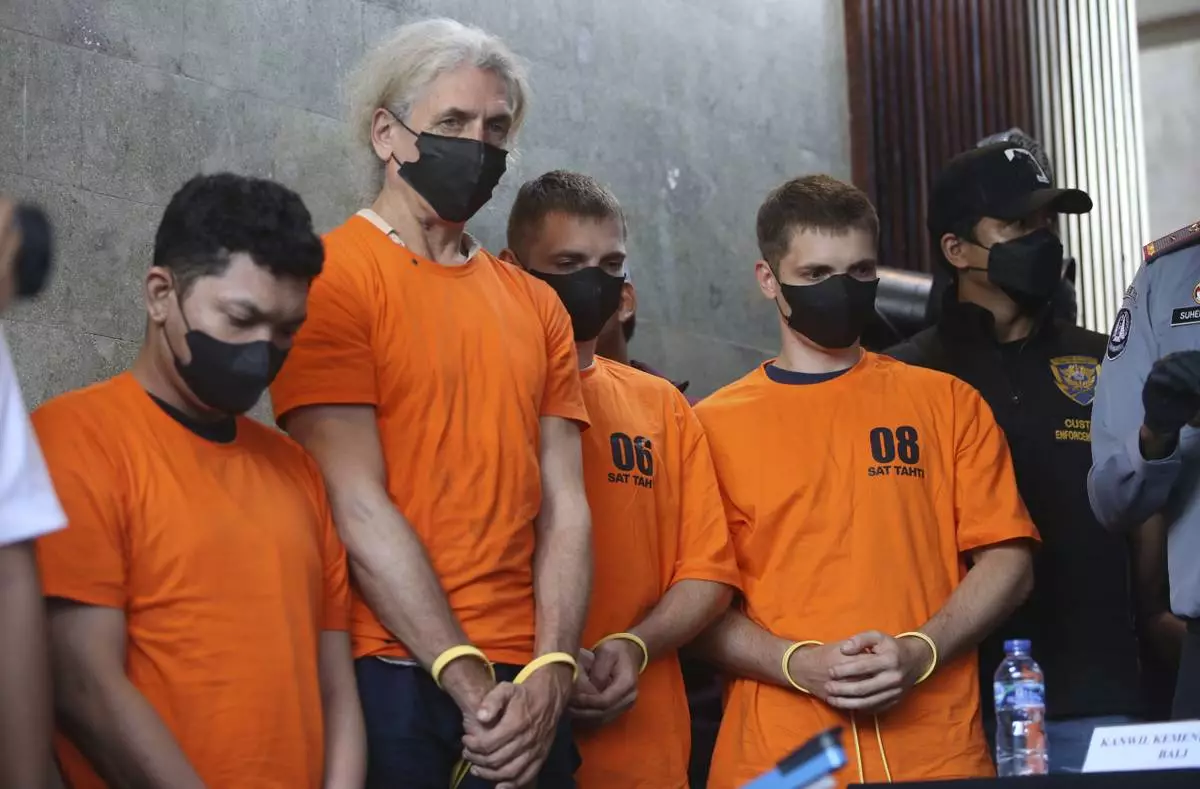
Suspects line up during a news conference at a villa in Canggu, Bali, Indonesia on Monday, May 13, 2024. Indonesian police raided what they said was a major drug lab hidden in a villa on the resort island of Bali, and arrested four people. (AP Photo/Firdia Lisnawati)
SADO, Japan (AP) — Japan will go ahead with a memorial ceremony on Sunday near the Sado Island Gold Mines, despite South Korea’s last-minute boycott of the event that highlighted tensions between the neighbors over the issue of Korean forced laborers at the site before and during World War II.
South Korea’s absence at Sunday’s memorial, to which Seoul government officials and Korean victims’ families were invited, is a major setback in the rapidly improving ties between the two countries, which since last year have set aside their historical disputes to prioritize U.S.-led security cooperation.
The Sado mines were listed in July as a UNESCO World Heritage site after Japan moved past years of disputes with South Korea and reluctantly acknowledged the mines’ dark history, promising to hold an annual memorial service for all victims, including hundreds of Koreans who were mobilized to work in the mines.
On Saturday, South Korea announced it would not attend the event, saying it was impossible to settle unspecified disagreements between the two governments in time.
Masashi Mizobuchi, an assistant press secretary in Japan’s Foreign Ministry, said Japan has been in communication with Seoul and called the South Korean decision “disappointing.”
The ceremony will be held as planned later Sunday at a facility near the mines.
The 16th-century mines on the island of Sado, off Japan’s north-central coast, operated for nearly 400 years before closing in 1989 and were once the world’s largest gold producer.
Historians say about 1,500 Koreans were mobilized to Sado as part of Japan’s use of hundreds of thousands of Korean laborers, including those forcibly brought from the Korean Peninsula, at Japanese mines and factories to make up for labor shortages because most working-age Japanese men had been sent to battlefronts across Asia and the Pacific.
Japan’s government has maintained that all wartime compensation issues between the two countries were resolved under a 1965 normalization treaty.
South Korea had long opposed the listing of the site as World Heritage on the grounds that the Korean forced laborers, despite their key role in the wartime mine production, were missing from the exhibition. Seoul's backing for Sado came as South Korean President Yoon Suk Yeol prioritized improving relations with Japan.
The Japanese government said Sunday’s ceremony was to pay tribute to “all workers” who died at the mines, but would not spell out inclusion of Korean laborers — part of what critics call a persistent policy of whitewashing Japan’s history of sexual and labor exploitation before and during the war.
Preparation for the event by local organizers remained unclear until the last minute, which was seen as a sign of Japan’s reluctance to face its wartime brutality.
Japan’s government said on Friday that Akiko Ikuina — a parliamentary vice minister who reportedly visited Tokyo’s controversial Yasukuni Shrine in August 2022, weeks after she was elected as a lawmaker — would attend the ceremony. Japan’s neighbors view Yasukuni, which commemorates 2.5 million war dead including war criminals, as a symbol of Japan's past militarism.
Ikuina belonged to a Japanese ruling party faction of former Prime Minister Shinzo Abe, who led the whitewashing of Japan's wartime atrocities in the 2010s during his leadership.
For instance, Japan says the terms “sex slavery” and “forced labor” are inaccurate and insists on the use of highly euphemistic terms such as “comfort women” and “civilian workers” instead.
South Korean Foreign Minister Cho Tae-yul said Saturday that Ikuina’s Yasukuni visit was an issue of contention between the countries’ diplomats.
“That issue and various other disagreements between diplomatic officials remain unresolved, and with only a few hours remaining until the event, we concluded that there wasn’t sufficient time to resolve these differences,” Cho said in an interview with MBN television.
Some South Koreans had criticized Yoon’s government for supporting the event without securing a clear Japanese commitment to highlight the plight of Korean laborers. There were also complaints over South Korea agreeing to pay for the travel expenses of Korean victims’ family members to Sado.
Kim reported from Seoul, South Korea.
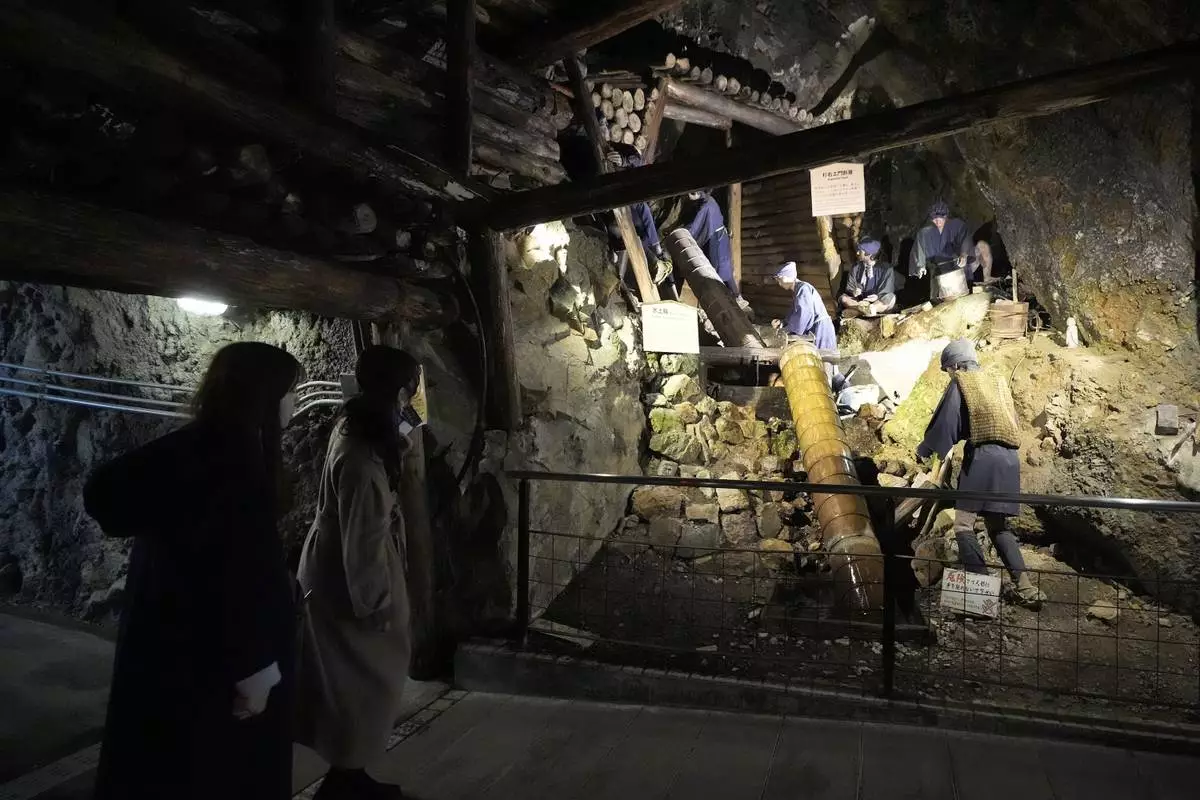
Visitors look at display at Sado Kinzan Gold Mine historic site in Sado, Niigata prefecture, Japan, Saturday, Nov. 23, 2024. (AP Photo/Eugene Hoshiko)







